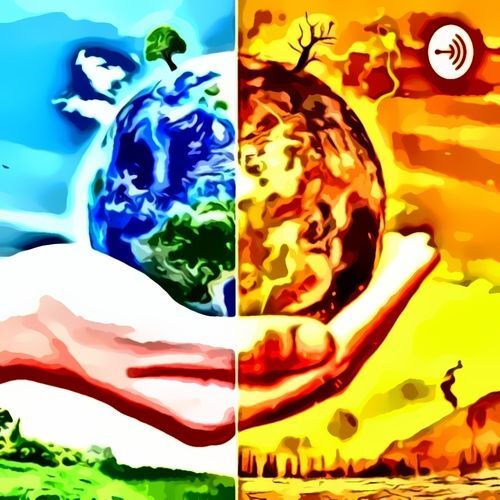IELTS Topic: Environment
VOCABULARY & EXPRESSIONS
Go over the following vocabulary and expressions with your tutor. Read the word/expression and definition out loud, and your tutor will go over anything you do not understand. Practice creating a sentence or two to make sure you know how to use the word/expression properly.
Vocabulary/ Expressions
Recycle: (verb)
using materials like aluminum cans, glass bottles, plastic containers, etc. and form it into something new that can be used
We should all try to recycle more in order to have less waste.
Use up: (phrasal verb)
to consume completely
After we use up all the gases in the car we will need to fill it up again.
Emit: (verb)
produce something, especially gas, radiation, or harmful fumes
We should try to use public transportation more, as this will help to reduce the carbon dioxide that we emit into the atmosphere.
Renewable energy: (noun)
energy from a source that is not depleted when used, such as wind or solar power
Solar power is a good source of renewable energy.
Pollution:(noun)
damage caused to water, air, etc. by harmful substances or waste
People should recycle plastics, so we can stop pollution.
Awareness: (noun)
knowledge or perception of a situation or fact
We should build our awareness of the problems in our society.
Conservation: (noun)
the protection of plants, animals, natural areas, etc., especially from the damaging effects of human activity
Conservation projects that the government does helps us to reserve our natural resources.
Toxic waste: (noun)
unwanted chemicals that are the result of manufacturing or industry and that are poisonous to living
There is a lot of toxic waste that people dump into the rivers and oceans every day.
Earth Day: (noun)
celebrated every year on April 22, on which day events worldwide are held to demonstrate support for environmental protection
On Earth day everyone celebrates by recycling and talking about the environment.
Be in deep water: (idiom)
to be in serious trouble
If we do not stop air pollution, we might be in deep water very soon!
PART 1 QUESTIONS
Introduction and interview (4-5 minutes)
Here are possible questions that might come up during the test. Go over them with your tutor.
In the first part, the examiner will ask you a number of general questions
Are there any pollution problems in your hometown?
Do you take any steps to help the environment?
Do you think pollution is a big problem nowadays?
Have you ever participated in any environmental events?
Do you think it’s important to recycle materials like metals, paper, and plastic?
How can we get children involved in learning how to recycle?
Are there any problems with the climate in your country?
Do you think people care about climate change?
What is the climate like in your country?
What is your favorite type of weather?
What kind of weather do you dislike?
Would you prefer to live in a hot or cold country?
Speaking Test Part 2 Response
Read the following instruction based on Part 2 of the IELTS Speaking test.
Useful Language
Phuong uses these phrases to give an honest opinion. Listen and repeat them with your tutor. Try to use them in your own answers.
- To tell you the truth, ...
- Honestly, ...
- ... frankly.
PART 2 QUESTIONS
Individual long turn (3-4 minutes)
Here are possible questions that might come up during the test. Go over them with your tutor.
You will have 1 minute to prepare to speak, and then you will talk for 1-2 minutes, during which the examiner will not speak.
Part 2 – sample task card
Sample A
Describe a problem that affects the environment where you live.
You should say:
- what the problem is
- how it happened
- what is being done to solve it
And explain how you feel about both the problem and the solution.
Sample B
Describe a very dirty and littered environment that you once experienced.
You should say:
Where this place was
What the situation was like
What your thoughts were on the problem, and how you felt
What you think we, as well as the Government, can do to solve and prevent this problem from happening in the future.
Sample C
Talk about a way a noisy environment you experienced.
You should say:
where it was
what type of noise it was
what you were doing at the time
and explain if it affected you negatively or not.
PART 3 QUESTIONS
Two-way discussion (4-5 minutes)
Here are possible questions that might come up during the test. Go over them with your tutor.
In the last part, you will talk with the examiner about issues related to the topic on the card.
Now we'll look at environmental problems and disasters caused by humans.
What do you consider to be the world’s worst environmental disaster caused by humans?
Why do you think environmental disasters caused by humans happen?
Do you think there will be more environmental disasters caused by humans in the future?
Do you think that governments around the world are doing enough to tackle the problems?
What should governments do to protect the environment?
What should people do to protect the environment?
Do you think it’s important to use renewable energy?
What are some examples of how humans damage nature?
Are people concerned about environmental problems in your country?
What are some ways water pollution can be reduced?


